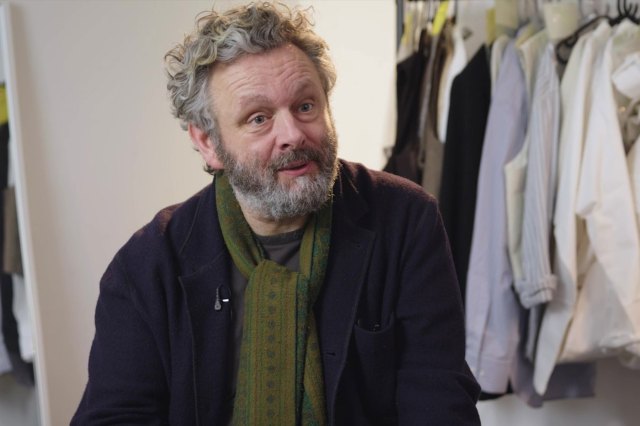Year of the Producer Blog: Fabric of the Fringe
Inspired by our adoption of Stage One as the charity for the 2012 Whatsonstage.com Awards,
we’re declaring this the “Year of the Producer” on Whatsonstage.com,
and are running a 12-month editorial series of interviews, blogs and
other features to give theatregoers a greater understanding of the
crucial role of the producer and an insight into the people who put on
the shows they love.
I am a few years now in this industry as a full(ish) time producer and still the same old daily battles: technical faults, hire prices, marketing departments, blah blah blah. And yet… and yet! Projects keep on rolling and my thirst for production remains as strong as ever.
I’m left confused at times asking myself why I don’t just drop everything, make a break for a fresh start in a new, more lucrative career. I’m there on a night out and speaking to friends with jobs in the City, the civil service, the third sector, other media industries, the BBC, film production, even salaried positions in the theatre and I say to myself, what am I doing?
The precarious nature producing theatre as an independent, always looking for funding and investment, and searching for that elusive final angel that prevents you having to dip deeper into your overdraft.
But then contemplating any other career seems unthinkable. The allure of the theatre keeps me going, the scent of bigger, ever-more exciting projects, the daily challenges and the satisfaction in seeing a plan come together, the glamour of the first night, full houses, the energy in a room hearing the laughter and feeling the suspense. It is this that makes it worthwhile.
I started at the Arcola working the box office before being given the opportunity to put on a few pieces of my own including a mini festival called Shortcuts featuring work by Foxfinder’s Dawn King and Birdsong’s Rachel Wagstaff.
Following another festival at the Union and participation in the Old Vic’s 24 Hour Plays, I found myself being contacted by writers and directors to work with them as a producer. Without realising it, I’d begun to take baby steps towards forging a career as a “producer” much more by accident than design.
Speaking with established industry figures, I can see just how much support there is now for people wanting to break into production: Stage One, Old Vic New Voices, ‘producing’ degrees at Birkbeck and Central, Grants for the Arts. These funds and networks mean that many more people can build up their own productions and find an audience to make a three to four week show work both critically and commercially.
However after these initial productions, what route does an aspiring producer take? I’ve friends who have found full time employment in subsidised theatres and others working for commercial producers, on apprenticeships and as assistants.
Rather than going down this path, despite applying for specific jobs every now and then, I’ve continued to work on my own projects, building relationships with other creatives and venues, and ever so slightly – show by show – elevate my career. Working in this way has given me the confidence to know that I can get productions off the ground and that I have courage in my own convictions in what works on stage. The next big (massive) step is to create those large-scale projects which can sustain an annual salary, finally confining those hours of part-time waiting, bar-work and temping to the past.
I nearly always work with other producers, and I find this completely invaluable. Sharing both the good and bad times makes everything work better. The key over the past few years has been working with the right people and understanding how to raise funds, balancing private investment with public funding.
My projects have attracted Arts Council England support (particularly the touring projects) but it is important to match whatever public support I can get with sponsorship, donations and investment. It is a battle to get enough money to pull off the kind of production that really lands, and although it’s not just about the cash, without the right level of support it simply isn’t possible to pay people properly. This is another key battleground. As an emerging producer I’m striving to budget my shows properly with enough in place to pay everyone on board an agreed industry minimum.
And yet, on the fringe the figures just don’t work, but perhaps there are too many shows on the fringe. Perhaps as producers, emerging or not, we should take our responsibility more seriously and not take on projects unless we are confident we can raise enough funds for proper fees.
Over the past 10 years since I arrived in London, it seems that the ‘fringe’ has become ever more institutionalised. Critics, creatives and audiences alike regularly compare shows from venues of all different sizes, from the Finborough, to the Donmar, to the Cottesloe. An expectation has built up that these smaller venues are presenting fully professional theatre, with all that that implies.
If that is what fringe theatres and producers working on the fringe want, then don’t they need to budget accordingly? Otherwise, embrace amateur theatre – accept and acknowledge that people are working alongside other commitments, work part-time in evenings over longer periods of time, and bring down the rental costs and ticket prices alike.
It’s a really tough one. Fundamentally for me further public funding is needed so that emerging artists can afford to work full time on projects in smaller spaces to become the next generation of practitioners and venues can bring down rents so as not to burden a production with such huge costs.
Theatre is vital to the fabric of London and the UK as a whole. I believe the Arts Council is already doing a very good job, the important thing is to take the argument to the public at large; in a time of cuts and squeezes, this is as necessary as ever.












